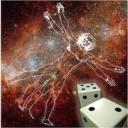Yahoo Answers is shutting down on May 4th, 2021 (Eastern Time) and beginning April 20th, 2021 (Eastern Time) the Yahoo Answers website will be in read-only mode. There will be no changes to other Yahoo properties or services, or your Yahoo account. You can find more information about the Yahoo Answers shutdown and how to download your data on this help page.
Trending News
How would you define the new age movement? Serious answers only ?
9 Answers
- QuestionerLv 75 months agoFavorite Answer
The New Age movement (some prefer the term “New Spirituality”) is usually said to have started in the 1960s and 70s in the United States and other Western nations. One website I found said there are around 3.5 million New Agers today, but it’s difficult to know for sure. In the early 90s it was estimated by some to be around 10-12 million. It’s believed that 2/3 of all New Agers are female and I read (more than once) that in the USA, politically, New Agers are virtually 100% Democrat (for some reason that kept coming up).
The New Age movement is often described as a reaction against both secular humanism and Christianity. They want spirituality and spiritual experiences (contrary to secular humanism), but they don’t want to come under the authority of organized religion (like Christianity).
There are a variety of beliefs and rituals and subdivisions in the New Age movement and so it’s often a difficult religion to delineate and define. There are quite a few popular New Age books, but there is no authoritative book or doctrine. That said, there are some beliefs that are pretty much common to all of them.
They believe in pantheism (everything is god and we are all a part of god). They usually believe in reincarnation (our spirits return in a new body after we die). They believe in self-actualization (my truth, my reality, my morals, and my power are found within and not without). And they believe in a coming new age of enlightenment and harmony (which, I believe, is why they are called the New Age movement).
On top of those things, they usually like crystals and incense and tarot cards and runes and psychic readings and yoga and transcendental meditation and astrology and numerology and alternative medicine and spirit guides and psychedelic drugs. And they will usually pick and choose from those things.
- 5 months ago
The New Age movement is a loose mix of religious, cultural, social, political, and scientific ideologies, combined with fascination for Eastern mysticism, the paranormal, the occult, and even some strains of modern psychology. The mix includes belief in astrology, reincarnation, extraterrestrial life, evolution, and life after death. Environmental and health concerns are also important ingredients.
IT IS not an organization, has no central leadership, yet its philosophers and masters probably number in the thousands. It does not have an official book of dogmas and beliefs, yet adherents. It has no personal god to be worshiped, yet it often promotes the idea of a god that can be found everywhere and anywhere. Anyone can join this movement. There is no initiation rite or baptism. People do not have to give up their religious affiliations to belong to it.
- Anonymous5 months ago
It was a movement or belief system that spread through the occult and metaphysical religious communities in the 1970s and ʾ80s. It looked forward to a “New Age” of love and light and offered a foretaste of the coming era through personal transformation and healing.
- Anonymous5 months ago
It sounds too weird...CHOOSE JESUS!!
- How do you think about the answers? You can sign in to vote the answer.
- Anonymous5 months ago
Just another attempt at woo. Trying to gather the peace-love aspect, blend it with herbs and spices, produce something vaguely nice and inclusive. Hateful fearful religious anything appeals to far more people than new age anything.
- Annsan_In_HimLv 75 months ago
That rules out stating Google's definition, then! Decades ago I read 2 of Shirley MacLaine's books about her discovery of the New Age enthusiasm that arose in the 1970s. Basically, trying to define the New Age is like trying to nail jelly to a wall! But in many respects there are some similarities, or compromises with Hinduism, so I'll deal with that. The New Age takes from the world of yoga, reincarnation, crystal power, Hindu mantras, and past-life recall experiences. Spirit guides inform adherents that each individual is God, and they try to pass along the “wisdom” trail that teaches the person to be unlimited. One only has to realize it.
New Age thinking has its roots, then, in Eastern mysticism, which attempts to bypass the mind. There is a new organ of perception—the third eye—which gives spiritual light. One needs to get to the “psychic self” by training one’s self to ignore messages from the mind or to see that the mind is actually achieving “cosmic consciousness.” The mind can create reality. That is very similar to Hindu belief. Try the link below for much more on this.
From the 1960s several Hindu gurus actively recruited western disciples to selective ideas of Hindu spirituality, as opposed to Hinduism as a whole. The best known movement is Hare Krishna and there is also Bhagwan Shree Rajneesh and Transcendental Meditation. In 1965 the Hare Krishna movement took off in New York. Another group is the Shri Sathya Sai Baba Fellowship. This has syncretistic eclectic teaching, incorporating elements from different religions but possessing strong Shaivite learning. All of this has infiltrated into the so-called Hippie movement. http://www.gotquestions.org/new-age-movement.html
- OlegLv 75 months ago
A mish-mash of various religions, where all these gurus/teachers read various religious/spiritual book and combine different concepts from different religions together, but it actually comes out as a self-contradicting mess.
It can be dangerous, as in the past i read these teachings - for example one teacher claimed that he saved the universe from destruction, telling people to buy his courses and make private meetings with him, for money, and since it teaches self-contradicting things - it can lead you to insanity. In reality he was just copying some bits of out of Christianity, Hinduism, Buddhism, theosophy, occult, spiritual books and mixing them all together, to promote himself and his books, but brought nothing new except his self-promotion.
Another would promote self-affirmations, that supposedly if you repeat some words that everything is good in your life, in your self-perception, you are making a sort of order to the universe, which will grant it, even supposedly curing AIDS, but some people accused her of lies, as many with AIDS died, even if resorting to her courses.
So this stuff is dangerous, often leading to personality cults and creation of various extremist sects, or at least promotion of false worthless teachings, which don't actually work in practice.
- Anonymous5 months ago
By using Google:
New Age movement, movement that spread through the occult and metaphysical religious communities in the 1970s and ʾ80s. It looked forward to a “New Age” of love and light and offered a foretaste of the coming era through personal transformation and healing.
- Christian SinnerLv 75 months ago
When I was doing a study at home on religions, I read articles about a bunch of them. New Age came up and there is a lot written on it. The thing about New Age is that it is so arbitrary. There are so many factions and unrelated schisms, it isn't a unified religious expression, though New Agers can get along with their differences. They do accept each other, but they have to make up what they believe. There is no centralizing text they all share. It's been a few years since I looked into New Age, I suppose something could have unified them, but I'm not even seeing the New Agism trend in society very much. Without a centralized text or set of beliefs, they become a lesser part of the religious landscape.







